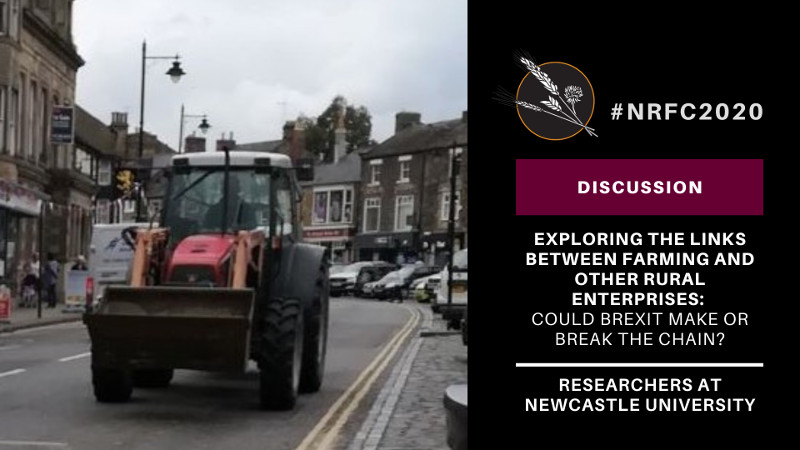Adrienne Attorp, Katie Aitken-McDermott and Carmen Hubbard
Centre for Rural Economy, Newcastle University
Our session involved a facilitated discussion, with a goal of identifying key challenges and opportunities facing northern rural regions post-Brexit and post-Covid and discussing solutions to these, based on best practices and local strengths and weaknesses. A better understanding of how Brexit will affect farming and the wider rural community and how we, as a community, might respond to these changes in the North will allow for the identification of more viable solutions to support sustainable and vibrant communities.
A key focus of the discussion was land: ownership of it, access to it, and management of it. Many session attendees were concerned with how existing land ownership patterns are limiting access to farming for new entrants. They also worry that post-Brexit, changes in farming subsidies and land use patterns might further limit land access. The need to ensure continued public access to the countryside for health and wellbeing was also discussed, something which would provide opportunities for rural entrepreneurs.
Concerns were also raised about the expertise agriculture students leave college or university with. Despite more discussion about ‘sustainable’ agriculture taking place in public and at the policy level, there still does not seem to be much focus on this in education. There was a general agreement that a broader, more rounded curriculum beyond pure productivity is required.
Looking forward, there is a clear need for innovative land use and land sharing initiatives that ensure existing farmers can stay on the land and that new farmers can access it. This will likely require a re-think of the role of landlords and of the traditional landlord-tenant relationship more generally. Creative ways of improving public access to the countryside are also needed, as is a greater focus on sustainability in agriculture within higher education. All this will require not only supportive government policies, but also creative practices at the grassroots level.
You can watch the recording of the session here.

